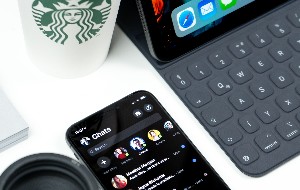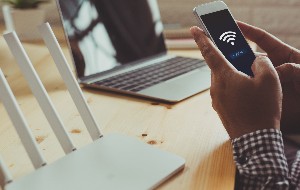Table of contents
- Can people track your phone number?
- Who can track your location?
- Apps and websites
- Advertisers
- Friends and family
- Hackers
- Government agencies
- How to prevent tracking by phone number?
- Scan for and remove spyware
- Disable location services
- Check your permissions
- Remove unfamiliar apps
- Lock your SIM card
- Avoid GPS stalking with Clario anti-tracking software
- Conclusion
Can people track your phone number?
Can someone track your location with your phone number? Yes, from finding your physical location to uncovering personal information. Anyone with access to your phone number can stalk you and discover your exact location. It’s also very hard to determine whether or not your phone is being tracked or monitored, making it essential to take privacy precautions. If you're concerned about unwanted tracking, it's also possible to stop sharing location without anyone knowing by adjusting your device's location-sharing settings or using privacy tools that mask your GPS data.
Here are some of the main ways that someone can track your location with your phone number:
- Cell signal triangulation. A phone’s approximate location can be determined by analyzing the signals from three or more cell stations. In fact, location can be tracked when your phone is off. This means that cell companies and anyone with access to a cell company’s data can easily triangulate your phone’s location. Worse, cell providers often sell this data to third parties.
- IP address. When a user connects to a website, the website can access the user’s IP address and use a geolocation lookup service to identify the user's phone number, country, region, city, postal code, and time zone. This information is gathered by obtaining an IP address from the user's device and then looking up the address in a database.
- GPS tracking. If you share your GPS location with apps, websites, and companies, they’re going to know exactly where you are at all times. Unfortunately, it’s also possible for advertisers, hackers, and stalkers to steal your location data with spyware apps.
- Bluetooth beacons. Bluetooth beacons broadcast signals to Bluetooth-enabled devices like smartphones. These beacons can detect the presence of nearby Bluetooth-enabled devices and can send tailored messages to those devices to aid with location-based services, such as navigating in stores and giving personalized recommendations.
Luckily, not everyone can track your location with just your phone number because it takes money and connections. However, they can use your number in other ways. For example, they could use it to steal your online accounts, impersonate you, or send you phishing messages.
Below, we’ll explain exactly who can track your location and what you can do about it.
Who can track your location?
It can be very hard to tell if someone is spying on your phone, but you can narrow it down. Someone can track you with your phone number using various digital tools, often without your knowledge. Here are the main culprits that might track your location:
Apps and websites
When you install apps on your smartphone, they often ask for permission to access your location data. If granted, these apps have always-on access to your exact location—and they often share this information with dozens of third-party companies to generate a profit. Even without GPS access, a phone number can be tracked by certain apps using Wi-Fi and cellular network data.
There are also several apps now designed to purposefully share your location with other people. For example, Apple’s “Find My” app, Google Maps, Life360, and Snapchat all offer ways to share your location with friends and family with the promise of increased safety. However, many of these apps sell your location data to other companies for a fee.
Stop sharing permissions
If you're unsure which permissions are safe and which are not, use the Clario Anti Spy Setup feature for mobile phones to guide you through this process. Clario Anti Spy Setup will show you which permissions should be altered to keep you away from stalking.
The same goes for websites. You’ve probably visited a website and received the message “Google wants to know your location.” If you click Allow, that website can now pinpoint your location and use that to share targeted advertisements (or sell the data to third parties).
Advertisers
Advertisers track your physical location in many ways, but the most common way is by buying your location data from apps that you’ve installed on your device.
However, advertisers can also track your location through your phone number alone. Despite promising to stop, US cell carriers still sell real-time location data to companies (including advertisers).
This means that there’s no way to prevent advertisers from tracking your location. An even worse consequence of this is that because that data is available for advertisers, all hackers have to do is infiltrate the advertiser’s systems to access the location data of countless devices.
Further, advertisers can also track your location through Bluetooth beacons. These are small Bluetooth emitters that are placed in key locations or on shelves in stores. The beacon tracks when your phone receives the signal and logs your location. This information is used to gauge how well advertising methods are working—but as always, this data can be sold or stolen.
Friends and family
Social media apps like Snapchat first began offering location tracking services by using GPS technology within the app. This allows the app to offer more customized content based on a user’s location or region.
Mostly, people use this feature for the safety-focused “Snap Map” that lets you share your exact location with trusted friends and family.
However, apps like Snapchat also allow users to opt-in for even more detailed tracking services, like heatmap tracking and geofencing.
- Heatmap tracking is a form of location tracking that uses a combination of GPS data and cell tower information to create accurate, three-dimensional maps of a user's movements.
- Geofencing is a technology that tracks a user's every move within a specific geographic area such as a shopping mall or stadium. Geofencing can be used to push location-specific messages or ads to users while they are in a specific place.
As we mentioned above, people (especially parents) have begun investing in parental control and location-tracking apps to keep tabs on their family members. While this can help parents keep their kids safe, it can also be a huge invasion of privacy.
Worse, these apps are often installed without the person’s consent or knowledge. For example, if your partner suspects that you’re having an affair, they may secretly install a tracking app on your phone.
Hackers
Because it’s so easy for apps and websites to track a user’s location (and other information), hackers have created fake apps and websites to do just this.
They’ll often convince you to install malicious apps via social engineering tactics. Even without installing anything, you can be tracked by your phone number if hackers exploit weaknesses in mobile networks or carrier databases. This is a direct method of how someone can hack your phone with a number. Once installed, they have access to real-time location updates. Once installed, they have access to real-time location updates.
For example, you might receive a message saying that a sign-in attempt failed. The message will tell you to follow a link and try to sign in again. However, when you do so, the website you visit installs spyware on your phone or asks for your location.
Worse, hackers can also use your phone number in other ways, including:
- Accessing your personal information. With your phone number, a malicious actor might be able to discover your employment history, address, and other key information that can be used against you.
- Stealing your identity. With this information in hand, a stalker can easily impersonate you. They could then commit fraud, call your bank to withdraw money, or contact your doctor to discover your medical records.
- Intercepting your messages and calls. Hackers have shown that it’s possible to hack network interchange services to discover people’s physical location. In 2014, hackers gained access to Signaling System No.7 (SS7). Once in, they were able to intercept and read text messages, listen to phone calls, and track people’s location – all with just a phone number.
Government agencies
Government and law enforcement agencies can track your approximate location using the triangulation method. By using a combination of your cell phone’s GPS signal, cell tower signals, Wi-Fi signals, and IP address, they can easily find your location.
Unfortunately, this happens on a huge scale – especially in the US. In 2020, the Wall Street Journal revealed that the government had purchased millions of smartphone users’ location data in order to track suspected criminals and undocumented immigrants.
Scarily, this data is often purchased from companies like Venntel rather than through the triangulation method. Venntel is a location data broker that aggregates as much location data as possible from smartphone apps on user devices.
Because the government can purchase location data from companies like Venntel, they don’t need to go through the typical legal processes they would to gather this information themselves. This means they can track far more people and commit huge invasions of privacy without breaking any laws.
How to prevent tracking by phone number?
To prevent your phone from being tracked, you need to be proactive. With safe cyber hygiene practices, you can secure your devices and prevent hackers, advertisers, and other people from stalking you. Here’s how:
Scan for and remove spyware
The first step is to make sure you have no spyware installed on your devices. With spyware installed, everything else you do will be for nothing since your stalker will still have direct access to your location data.
To scan your Android for spyware, use Clario Anti Spy’s Spyware scan:
- Download and install Clario Anti Spy.
- Click Spyware scan on the dashboard.
- Choose Start scan.
- After the scan is done, Clario Anti Spy will show you which apps may be spying on you and how to get rid of the threats it found on your device.
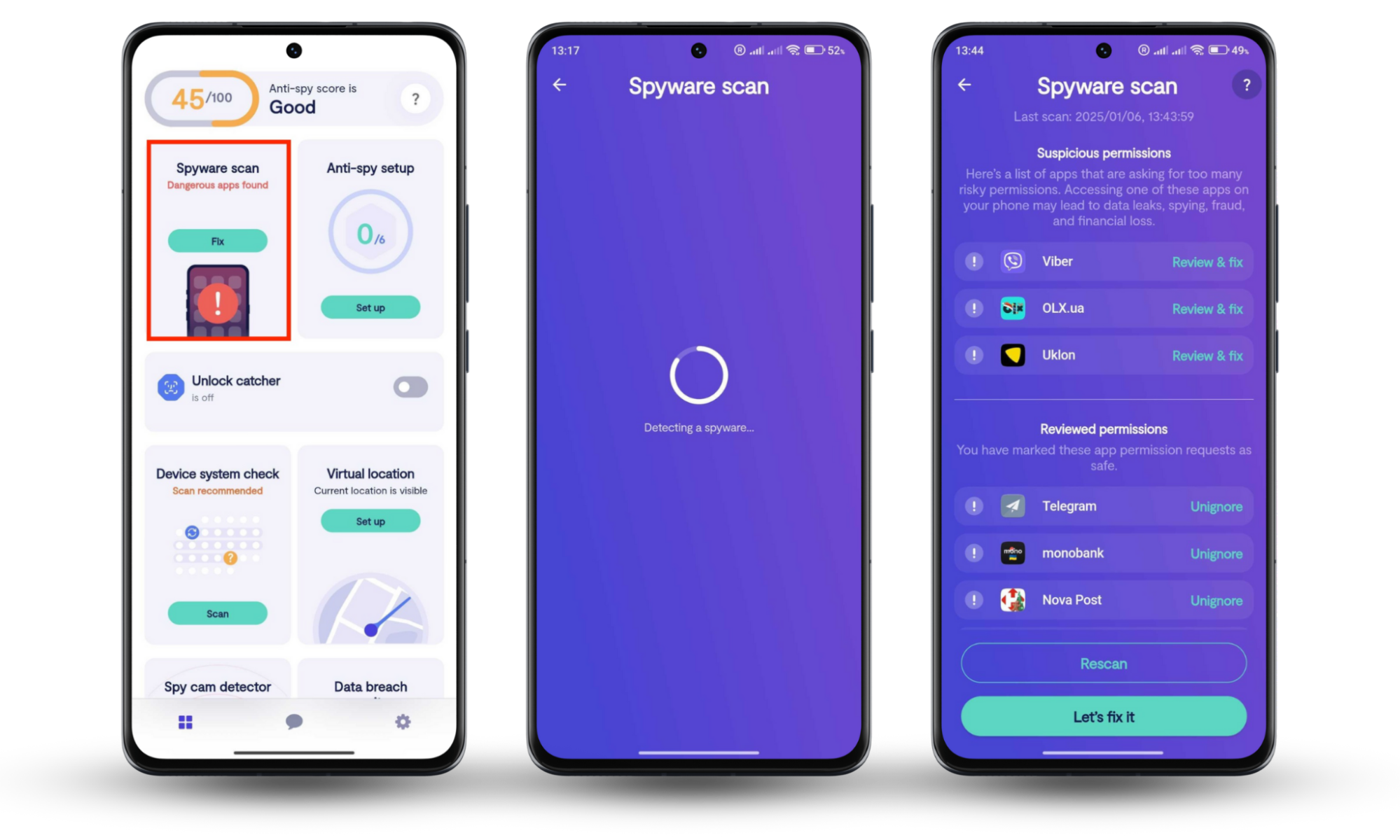
Since there are only to ways to install spyware on your iPhone: jailbreak it or steal your passwords, you can use Clario Anti Spy’s Device system check to ensure you’re safe. To scan your iPhone for vulnerabilities:
- Choose Device system check on the dashboard.
- Hit Scan.
- The app will show you if your iPhone is up to date and weather someone has jailbroken it. Follow the security recommendations to restore your privacy.
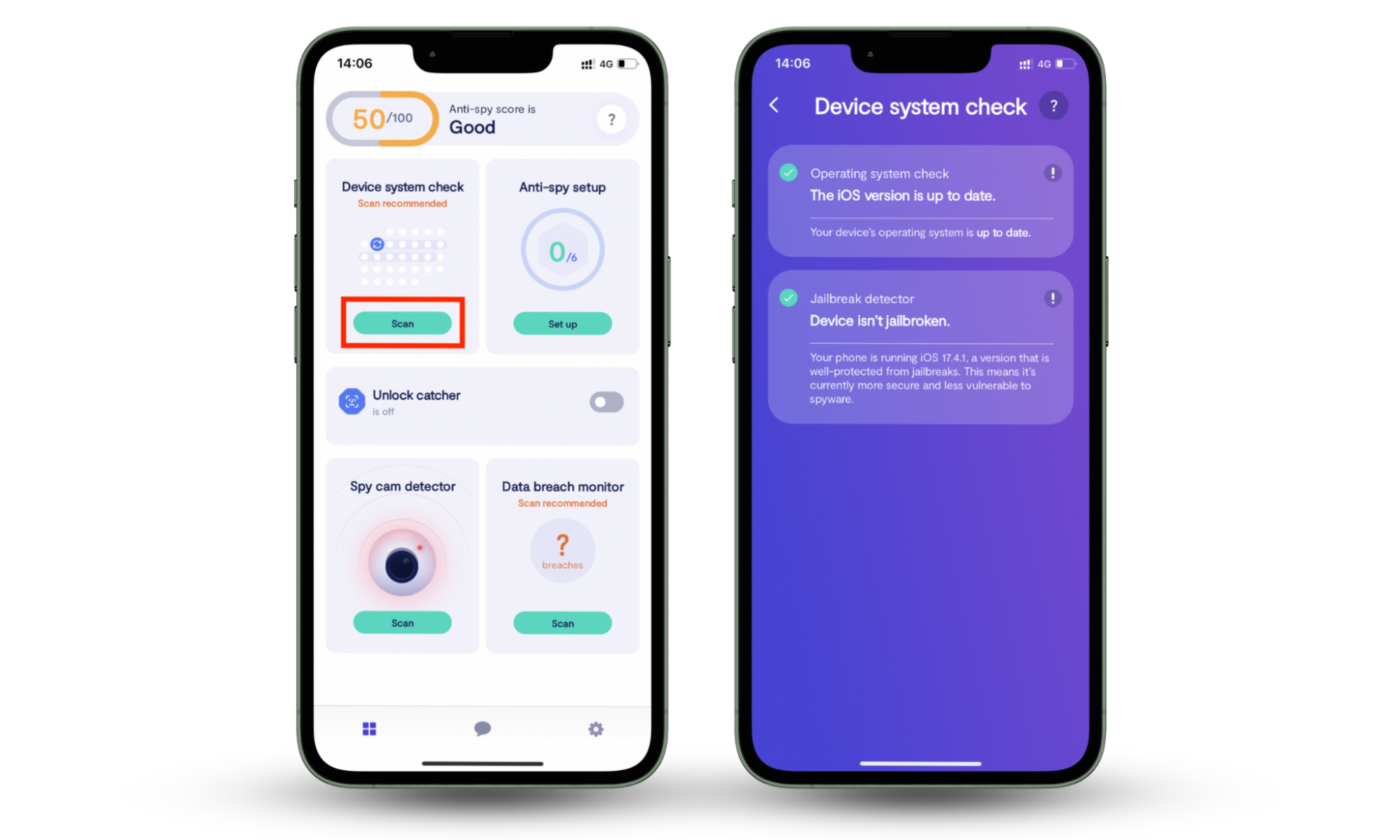
Once the tool has finished scanning and you got rid of all threats, your mobile device should be completely free of spyware.
Disable location services
The most common way that people track your location is via location services. The easiest way to prevent this is by simply turning your location services off.
To turn location services off on an Android phone:
- Unlock your phone, then swipe down from the top of the screen twice
- Find and tap the icon that looks like a location marker.
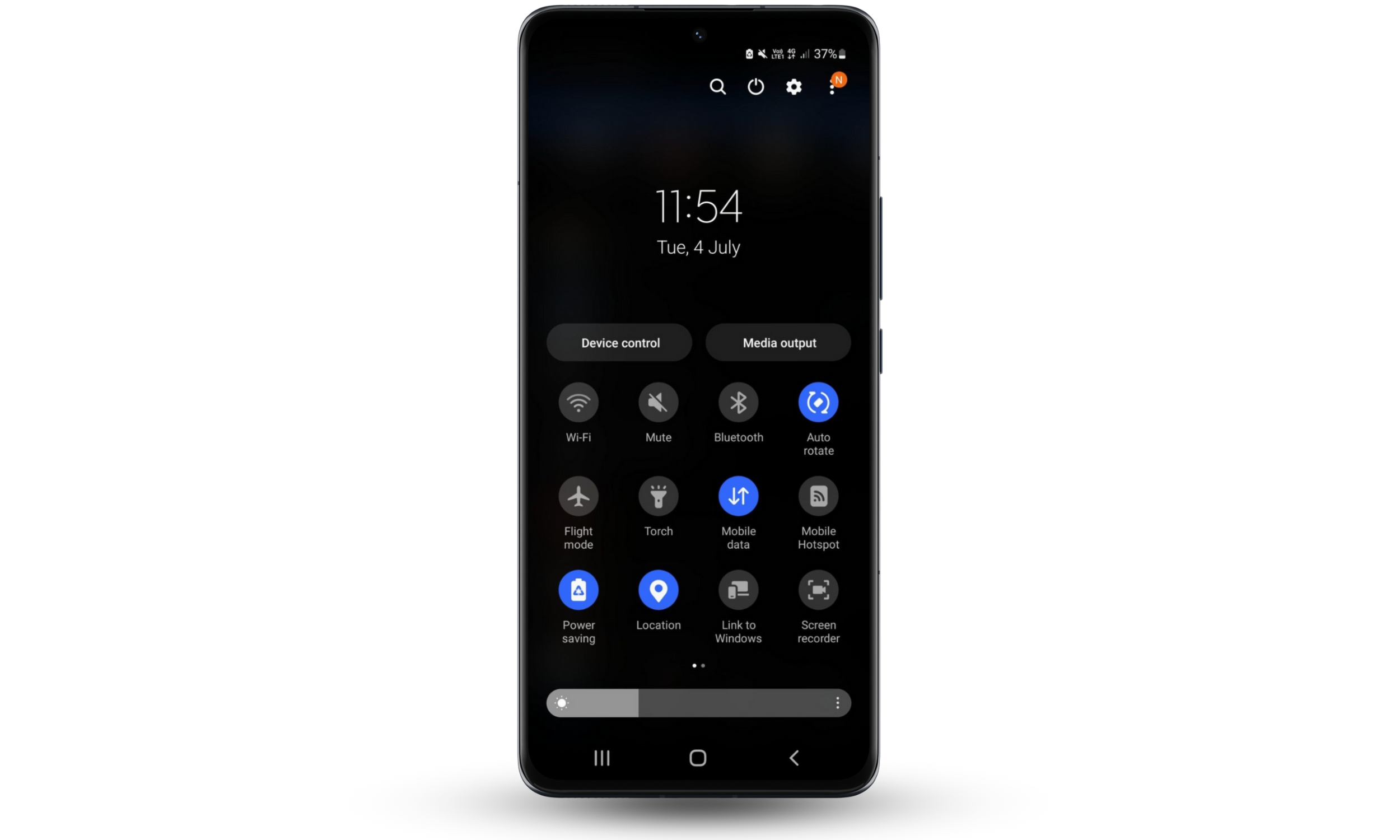
To turn location services off on an iPhone:
- Open your phone and go to Settings
- Tap Privacy & Security > Location Services
- Toggle Location Services off.
You can also turn on Airplane mode to prevent all signals from reaching your phone. This will prevent your location from being tracked via location as well as cell signal triangulation.
Check your permissions
Once you’ve turned your location data off, you can scan through your app permissions and ensure that no app is able to record, share, or sell your location data to other people.
On iPhone:
- Go to Settings > Privacy & Security > Location Services
- Here, scroll through each app and turn off location services for any that you think might be sharing your location with other companies.
- Next, in Settings > Privacy & Security, tap App Privacy Report. This will show you how your apps are using the permissions you granted them and what they’re doing over your network. If any app has permissions that it doesn’t need, you can revoke them immediately.
On Android:
- Go to Settings > Privacy > Permissions Manager.
- Here, you can see which apps have which permissions. For example, you might find that a dozen apps have access to your location data. Simply scroll through and revoke any permissions which seem out of place.
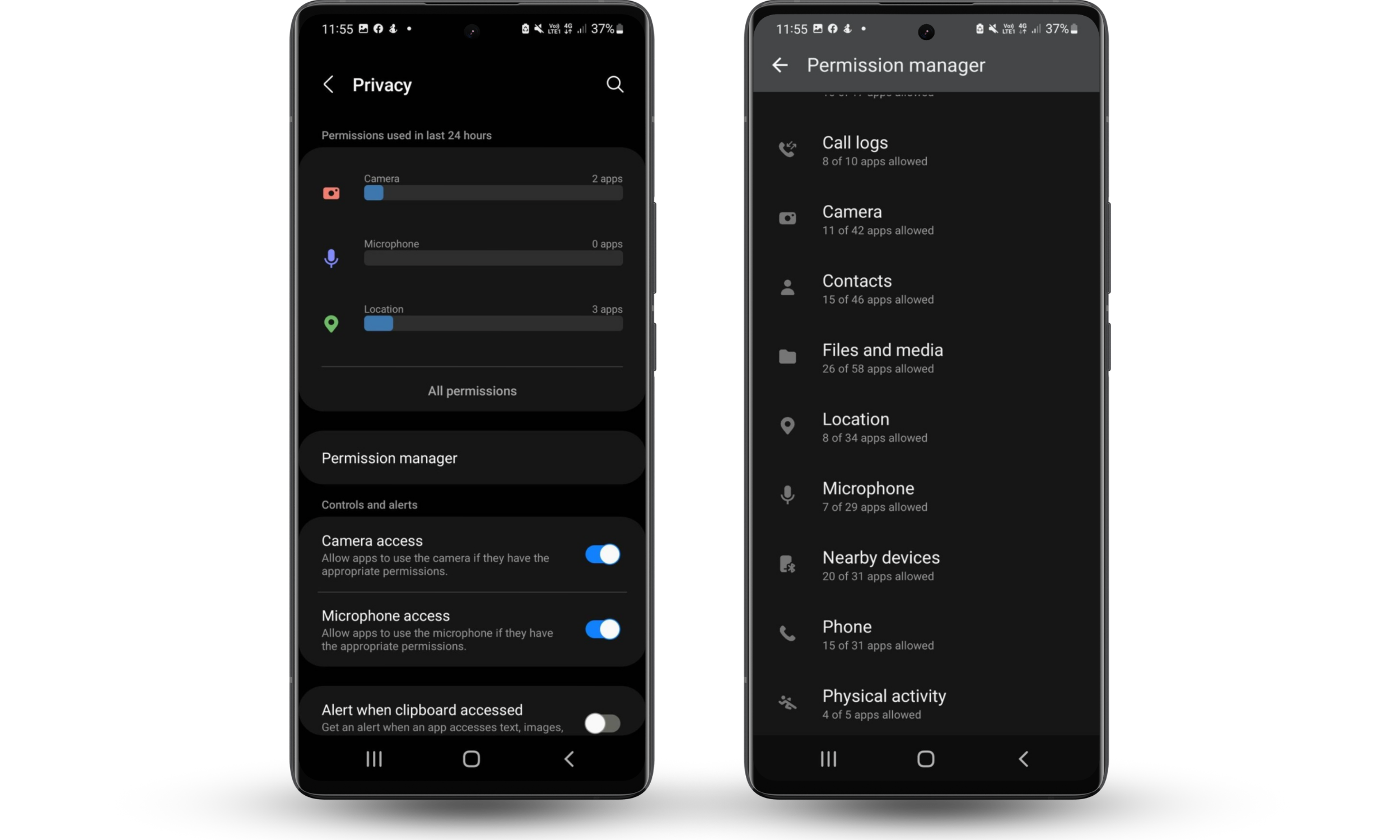
Important
It’s especially important to remove location services from social media apps which are notorious for sharing your information with advertisers and other third-party organizations.
Remove unfamiliar apps
As you scan through your app permissions, look for suspicious or unfamiliar apps that you don’t remember installing. These could also be familiar apps with two icons or a familiar icon, but the name is different. These may be spyware or other malicious apps that are stealing your personal information or being used to track and stalk you.
On Android, it’s easy to do this if you navigate to Settings > Apps and slowly scroll through the list.
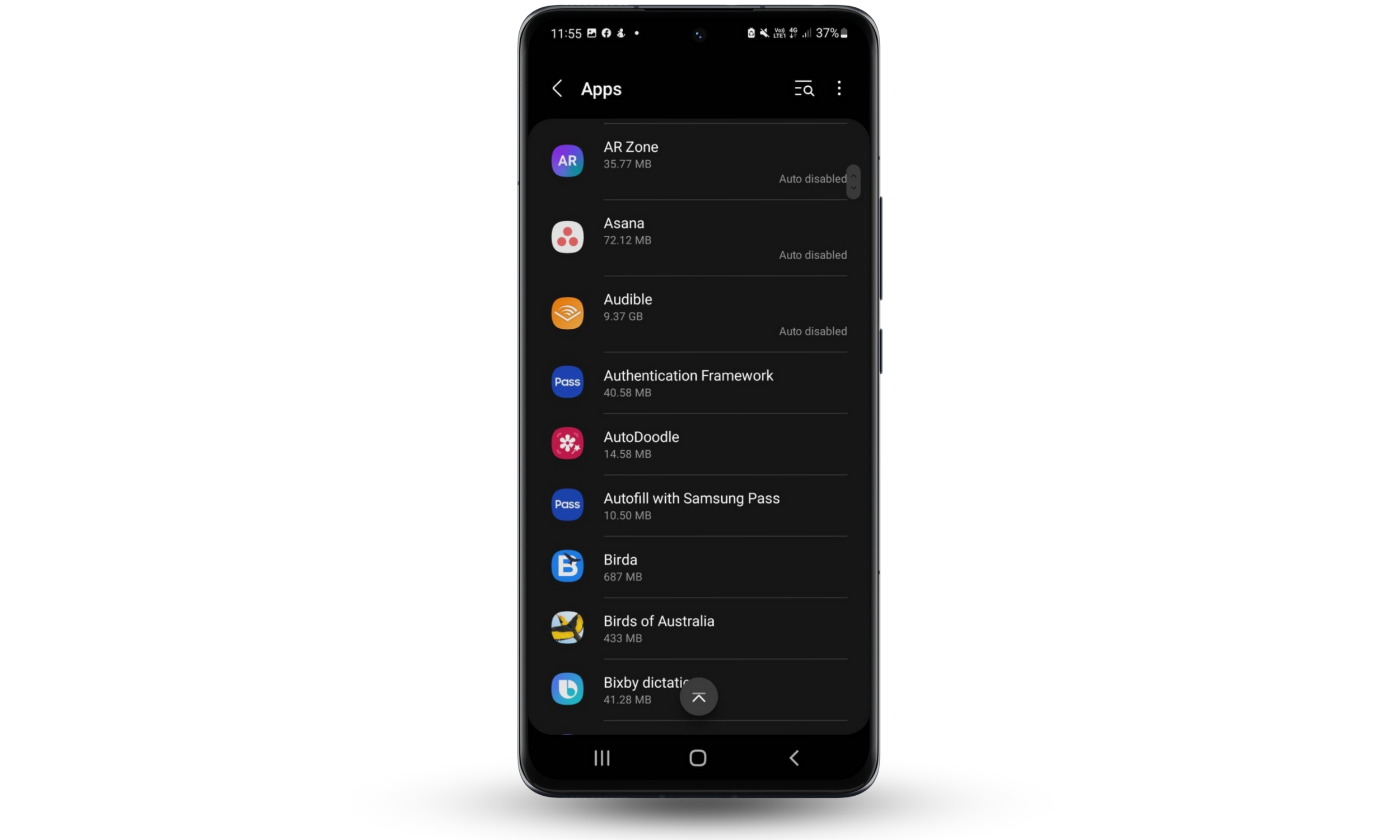
On iPhone, swipe left until you reach the App Library.
Also, pay attention to fake apps that are designed to mimic legitimate apps. For example, you might find an app that’s called “Android Location Services App” that looks real but is, in fact, spyware.
If you’re unsure whether there are malicious apps installed on your device, you could factory reset your device. This will ensure that all non-system apps are removed, and you can reinstall them one by one.
In the future, you should only install trusted apps from official app stores. These apps are checked for malicious software and are far more trustworthy than apps installed from third-party sites. Once installed, always make sure to only grant necessary permissions and limit the apps as much as possible.
Lock your SIM card
A SIM lock is a restriction placed on smartphones by the manufacturer or service provider that prevents them from being used on other networks.
This is done by locking the SIM to the original carrier and preventing any other SIM cards from being used in the device. The lock can only be circumvented by using an unlocking code, which is typically provided when the device is bought from the provider.
A SIM lock provides an extra layer of security for your device, as it means that only compatible SIM cards from the carrier can be used on the device. This not only helps to reduce the risk of theft or fraud but also prevents your device from being used on an unauthorized network, as it will not be able to connect to a different carrier.
As the device can only be used with compatible SIM cards from the original provider, it helps to protect the device from unauthorized access and ensure that only you have access to the device and its data.
Android and Apple phones now let you place a SIM lock on your device that prevents the SIM from being used by anyone else without your PIN code.
To put a SIM lock on your Android phone:
- Go to Settings > Biometrics and security.
- Tap on Other security settings.
- Tap Set up SIM card lock.
- Turn on Lock SIM card and enter the default PIN code if this is the first time you’re enabling the setting.
- Tap Change SIM PIN and enter your own, unique PIN code.
- Enter your old PIN, then enter your new PIN and press OK.
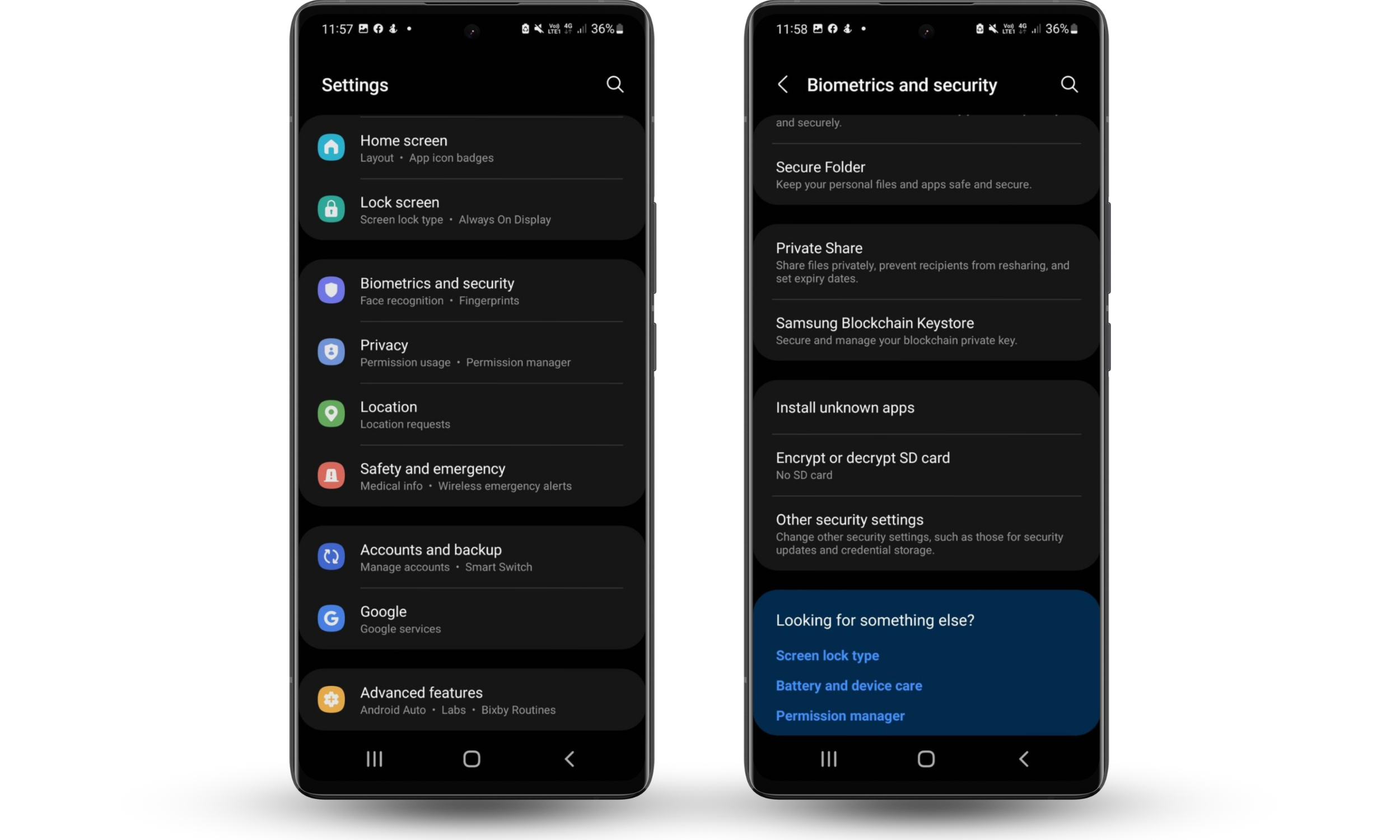
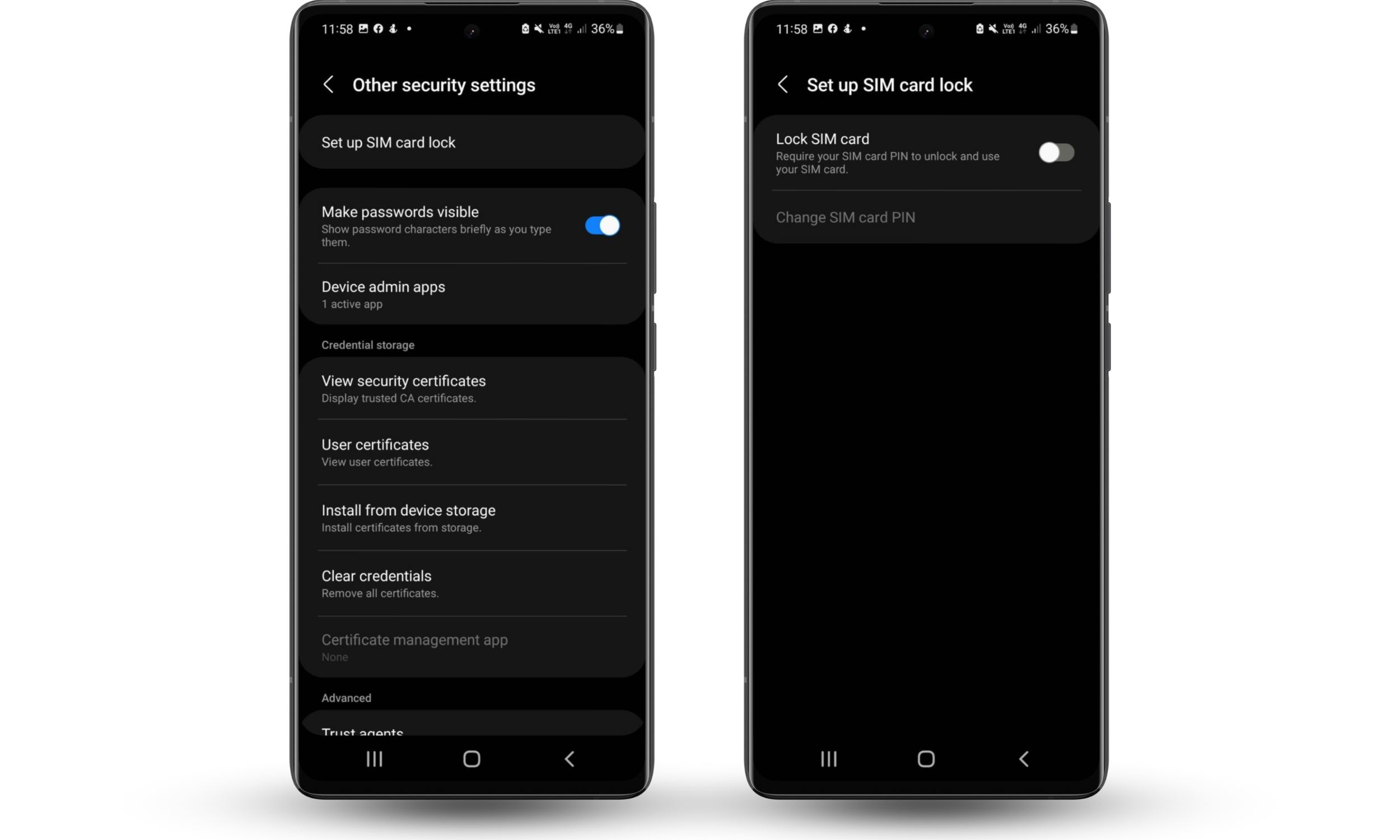
To add a SIM lock to your iPhone:
- Open Settings > Cellular > SIM PIN
- Turn SIM PIN on and enter your SIM PIN. If you’ve never done this before, enter the default SIM PIN from your carrier.
- Tap Done.
Avoid GPS stalking with Clario anti-tracking software
Clario Anti Spy is a cybersecurity solution created by industry experts that helps people protect themselves from digital stalking.
The app protects your calls, messages, contacts list, location, and files from unauthorized access so that you can be sure no one is tracking you without your consent.
You can use Clario Anti Spy to:
- Scan and monitor data breaches. Check your online accounts and see whether your data has been leaked online in a recent data breach.
- Check your operating system. Scan your device for updates and make sure your device has the latest security patches.
- Scan for and remove spyware and viruses. Analyze your device for spying threats and eliminate possible risks. Scan and remove malicious apps and software from your devices.
- Browse safely. Block online advertisements and trackers before they can collect your personal information. Clario also shields you from malicious websites like phishing sites.
- Mask your location. Use a virtual private network (VPN) to make it seem like your device is anywhere in the world.
Clario Anti Spy is available on iOS and Android.
Conclusion
As you can see, it’s becoming easier and easier for someone to track your location. Along with other rising privacy concerns, the internet is becoming more dangerous every year. That’s why you need a powerful cybersecurity solution like Clario Anti Spy that can help protect your privacy, identity, and data.

